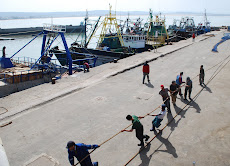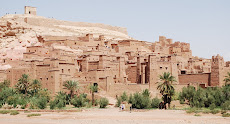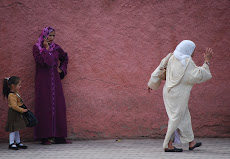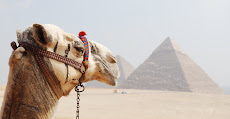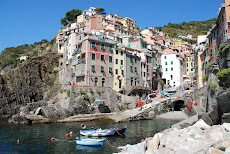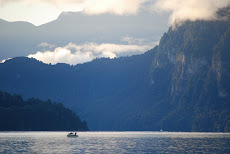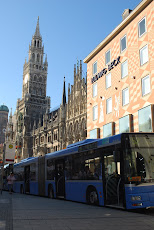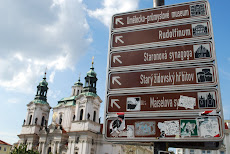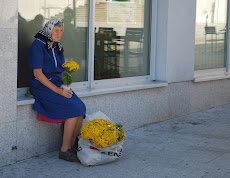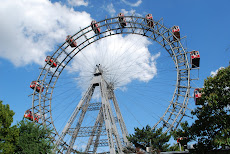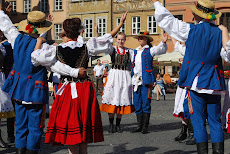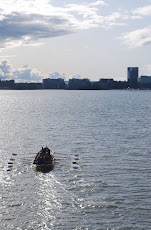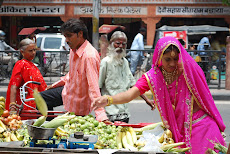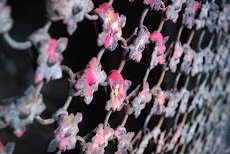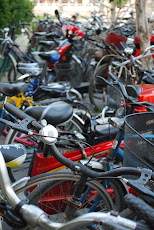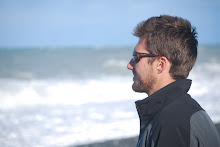Hayley looked at me through squinted eyes with a half smile that told me instantly she was trying to tell a lie. She is entirely incapable of such an act, so when she uttered the words, “do you have our tickets?” what she really said was, “we never bought any.” I adore her transparency, it is one of her greatest traits, but in this instance it exposed our delinquency and confirmed our guilt instantaneously. The brute standing behind her (a terrifying mutation of Cruella de Vil, Janet Reno, and my disciplinarian 3rd grade teacher, Mrs. Gagnon) came forward and barked at me in Czech. I stared back at her with starry eyes, preparing to play dumb. She flipped to English and foiled that plan.
“Tickets, you must have tickets! Metro not free! Now you pay big fine!” She mentally fiddled with some numbers and then declared our crime was punishable by 700 krown a head—a sum that would cost our group over 220 US dollars, or as I saw it through a more palpable conversion, seven pans of roasted pork knee and duck breast. In any currency this was outrageous, and all five of us agreed. Her request for payment was met with a collective, “No way!” In a steady, sure-handed motion that revealed anticipation of our resistance, she reached for her cell phone and dialed 1-5-8, the three digit number for the Policie.
We found ourselves entrapped in a matter of moments. One second we were blissfully returning to the city center from a peaceful picnic on a cliff above the Vltava River, in the next we were being held captive by a formidable underground officer who took her job way too seriously. To be fair, we were without tickets. And to be entirely honest, we had discussed the topic of our ticketlessness, and acknowledged that the city’s services were certainly not gratis. But in our defense, there was nary a ticket machine in the underground, there were no regulating turnstiles to the escalators, and every other passenger around us seemed to be passing through with complete liberty. We had simply followed the crowd—until, of course, we were plucked from it by the money-hungry-metro-monster. In this moment of moderate desperation, as we stood in the grips of authority with a sizeable amount of money on the line and the Policie in pursuit, everyone’s true nature suddenly came to center stage.
Jeannie flew directly into protection mode. The officer bit and Jeannie bit back. In not so many flattering words she told the officer that her imposed fine was preposterous and that her position in the city’s law enforcement hierarchy was underwhelming. The relentless officer was a bitter and cruel woman and Jeannie did her best to mirror her personality. By contrast, Hayley put on a meek grin, shyly glanced down at her hands, innocently twirled her thumbs, and batted her eyes in a heart-melting look of remorse. She looked far too sweet to be penalized. The officer, impenetrable by Hayley’s girlish charms, continued to press us for money. This is when Joe, the doctor, appealed to her rational side with scientific demonstrations. “Look at this gentleman here,” he said pointing to a man walking freely through the subway. “I just watched him walk down these steps and on to a train without showing a ticket. Why aren’t you stopping him?” She was not wooed by Joe’s application of the Socratic Method. I stood by and watched these three thwarted attempts, amazed by the way each appeal was a perfect representation of their individual character.
And then it was my mom’s turn. She looked at me, wide-eyed and rearing to go, and silently mouthed the words, “Should we run?”
Here I was, staring in the face of authority, contemplating our next move, mentally weighing thoughts of defiance and obedience. My inner rebel was arguing with my conscience. It was a moment, like many others in my life, when I wished I could ask for my mother’s advice. And here she was, right in front of me, suggesting we turn and run. My own moral compass, live in the flesh, proposing we evade the law.
In a bizarre moment of eerie role reversal, I shook my head at my mom’s mutinous idea. The Policie arrived in the subway seconds later. When they deferred jurisdiction and all the power to the metro-monster, I knew we wouldn’t see daylight until some paper was produced. I discreetly reached for my wallet and produced 700 krown—a fine for one person seemed more reasonable than full penance for five. I extended the bills in my hand for a long time before she took them. She scribbled something in a notebook and then handed me a ticket in exchange for the cash. Before she was able to say another word we were swiveling on our heels and heading for the stairs. We never looked back.
We avoided the monster’s dungeon for the remainder of our time in Prague, favoring sunlit streets and our own feet for transportation. We vowed not to let the subway saga sour our experience in the Czech Republic. The capital city is one of staggering beauty. The wonder of its architecture seems endless; layers upon layers of rich hotels, restaurants, churches, castles, and clock towers. The food is some of the best we’ve eaten on this journey. But what made Prague the most enjoyable is clearly the people we were able to explore it beside. My mom is here now and I somehow feel at home, thousands of miles from California. She gives me a certain type of happiness that no one else can. Hayley and Joe are incredible. They have each enhanced the adventure with their easy and infectious laughs. It would be hard to find a more willing couple. Before I can finish the question, “would you guys like to…?” they have already answered affirmatively.






